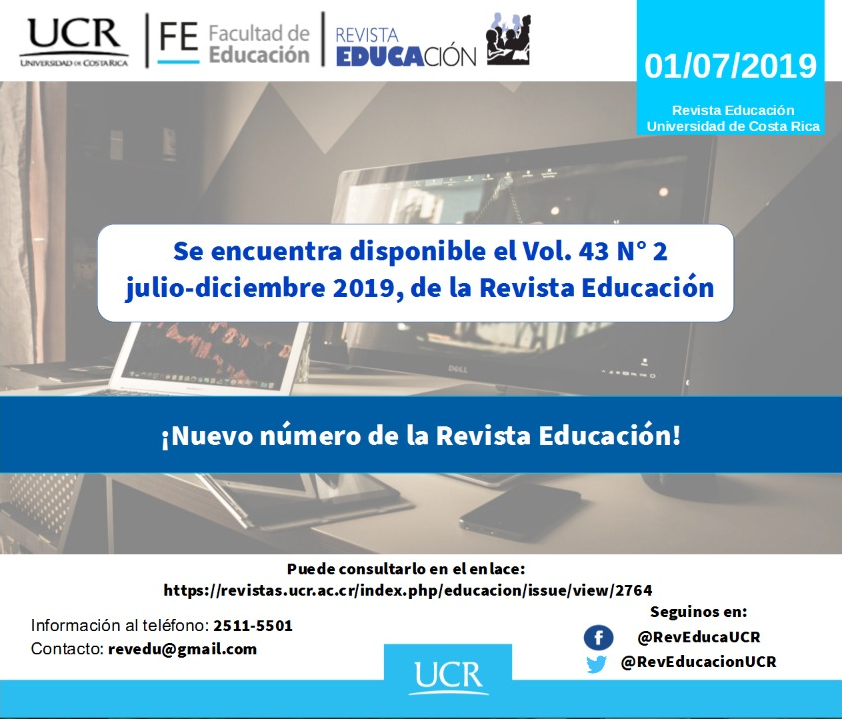Abstract
In an effort to understand the social practices and origin of Mathematical Induction, we conducted both a literature review on the teaching of Mathematical Induction and a historical-epistemological analysis of the subject dating back to two periods: prior to the 16th century and during the 16th-17th centuries. The socioepistemological theoretical approach used to determine social practice for mathematical induction is the “proof”. We also considered useful elements necessary to redesign mathematics school discourses specifically for engineering students. Four students and two instructors were asked to complete a survey about problem-solving difficulties that students struggled with. We conclude that although Mathematical Induction is an important method of proof in Mathematics, the origins of the social practice of the “proof” infers that its resignification is too complex and inappropriate for engineering students. A historical-epistemological analysis from the 18th century to the present is recommended in order to redesign the educational discourse associated with this subject.
References
Andrew, L. (2007). Reasons why students have difficulties with mathematical induction (Report). Greeley: University of Northern Colorado.
Avital, S. y Libeskind, S. (1978). Mathematical Induction in the classroom: Didactical and Mathematical Issues. Educational Studies in Mathematics, 9(4), 429-438.
Buendía, G. (2004). Una epistemología del aspecto periódico de las funciones en un marco de prácticas sociales (Un estudio socioepistemológico). (Tesis de doctorado). Centro de Investigación y de Estudios Avanzados del Instituto Politécnico Nacional, México.
Buendía, G. (2006). Una socioepistemología del aspecto periódico de las funciones. Revista Latinoamericana de Investigación en Matemática Educativa, 9(2), 227-251.
Buendía, G. y Cordero, F. (2005). Prediction in the periodic aspect as generators of knowledge in a social practice framework. A siocioepistemological study. Educational Studies in Mathematics, 58(3), 299-333.
Bussey, W. (1917). The Origin of Mathematical Induction. The American Mathematical Monthly, 24(5), 199-207.
Cajori, F. (1909). Shorter Notices (rewiew Ueber das Wesen der Mathematik), Bulletin of the American Mathematical Society, 15(8), 405-409.
Cajori, F. (1918). Origin of the name “Mathematical Induction“. The American Mathematical Monthly, 25(5), 197-201.
Castro, E., Cañadas, M. y Molina, M. (2010). El razonamiento inductivo como generador de conocimiento matemático. UNO, 54, 55-67.
Covián, O. (2005). El papel del conocimiento matemático en la construcción de la vivienda tradicional. El caso de la cultura maya (Tesis de maestría no publicada). Centro de Investigación y de Estudios Avanzados del Instituto Politécnico Nacional, México.
Crespo, C. (2007). Las argumentaciones matemáticas desde la visión de la socioepistemología (Tesis de doctorado no publicada). Centro de Investigación en Ciencia Aplicada y Tecnología Avanzada del Instituto Politécnico Nacional, México.
Cusi, A. y Malara, N. (2008). Improving awareness about the meaning of the principle of mathematical induction. En O. Figueras, J. Cortina, S. Alatorre, T. Rojano y A. Sepúlveda (Eds.). Proceedings of the Joint Meeting of PME 32 and PME-NA (pp. 393-398). Morelia, México: Cinvestav-UMSNH
Ernest, P. (1982). Mathematical Induction: A Recurring Theme. The Mathematical Gazette, 66(436), 120-125.
Ernest, P. (1984). Mathematical Induction: A Pedagogical Discussion. Educational Studies in Mathematics, 15(2), 173-189.
Euclides (1991). Elementos, (Puertas Castaños, M. Trad.). España: Gredos.
Mason, J. y Spence, M. (1999). Beyond mere knowledge of mathematics: The importance of knowing-to act in the moment. Educational Studies in Mathematics, 38(1), 135-161.
Montiel, G. (2005). Estudio Socioepistemológico de la Función Trigonométrica (Tesis de doctorado no publicada). Centro de Investigación en Ciencia Aplicada y Tecnología Avanzada, México.
Movshovitz, N. (1993). The False Coin Problem, Mathematical Induction, and Knowledge Fragility. The Journal of Mathematical Behavior, 12(3), 253-268.
Napolitani, D. (2000). Arithmeticorum libri duo. Francisci Maurolyci Mathematica. Recuperado de http://maurolico.free.fr/edizioni/arithmet/ariduo/intro.htm.
Pascal, B. (1995). Obras Matemáticas. México, D.F.: Mathema.
Ron, G. y Dreyfus, T. (2004). The use of models in teaching proof by mathematical induction. En M. J. Hoines y A. B. Fuglestad (Eds.), Proceedings of the twenty-eighth conference of the international group for the Psychology of Mathematics education PME (pp.113-120). Bergen, Norge: Bergen University College.
Sampieri, R. (2006). Metodología de la investigación. México: Mc Graw Hill.
Tchoshanov, M., Cruz, M., Huereca, K., Shakirova, K., Shakirova, L. e Ibragimova, E. (2017). Examination of Lower Secondary Mathematics Teachers’ Content Knowledge and Its Connection to Students’ Performance. International Journal of Science and Mathematics Education, 15(4), 683–702.







